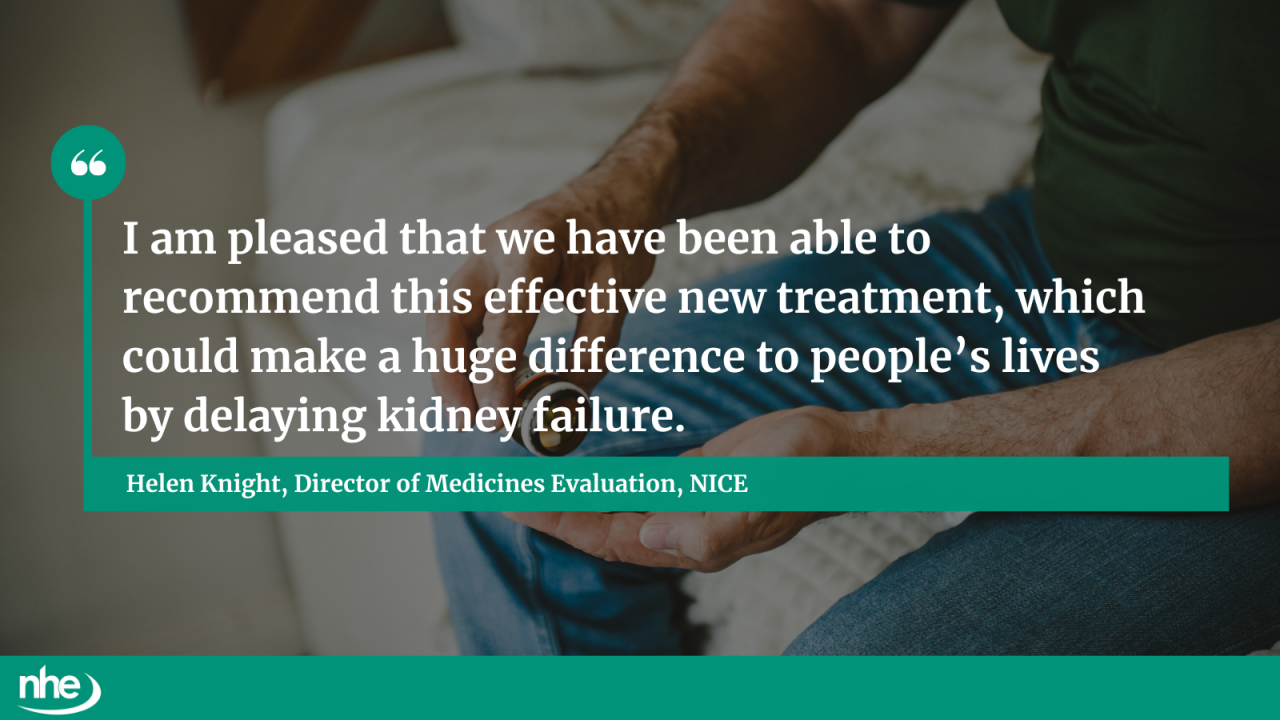Thousands of people living with chronic kidney disease in England could soon benefit from a new treatment, following final draft guidance from the National Institute for Health and Care Excellence recommending sparsentan for NHS use.
The once-daily oral treatment is now recommended for adults with primary immunoglobulin A nephropathy (IgAN)—also known as Berger’s disease—who are at risk of rapid disease progression. This includes those with a urine protein excretion of 1.0 g/day or more, or a urine protein-to-creatinine ratio (UPCR) of 0.75 g/g or more.
IgAN is a progressive, chronic kidney condition where the IgA protein builds up in the kidneys, damaging their ability to filter waste from the blood. Over time, this can lead to inflammation, scarring, and ultimately kidney failure. The disease affects over 18,000 people in England, with men and those under 40 particularly at risk.
Sparsentan works by blocking two key hormone receptors—endothelin-1 and angiotensin II—that contribute to kidney damage. Clinical trials show it significantly reduces proteinuria and may better preserve kidney function compared to standard treatments.
NICE’s Director of Medicines Evaluation, Helen Knight, commented:
“I am pleased that we have been able to recommend this effective new treatment, which could make a huge difference to people’s lives by delaying kidney failure.
“Our independent appraisal committee heard about the devastating impact this disease can have on people’s ability to work, travel, and maintain relationships and the limited treatment options available.
“Sparsentan offers long-term benefits to patients, and we are determined to ensure that we continue to get the best care to patients fast while ensuring value for the taxpayer.”

Unlike targeted-release budesonide, which is typically prescribed for a limited nine-month course, sparsentan is intended for long-term use, offering sustained protection against disease progression.
NICE estimates that around 4,200 people could be eligible for the treatment, which is expected to reduce the number of patients progressing to end-stage renal disease, potentially avoiding the need for dialysis or kidney transplants.
This decision marks a significant step forward in the treatment of IgAN and is expected to ease long-term pressure on NHS renal services.
Image credit: iStock



















